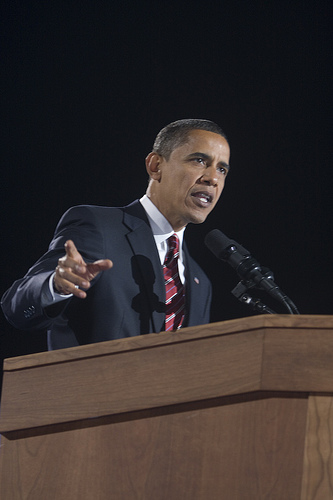Politics
Will the Next Unicorn be a Distributed Autonomous Organization?
With the recent talk of reddit being cannibalized by bitcoin technology, I thought it a good time to post something I’ve been thinking about for a while. Could a completely decentralized startup one day rival the likes of Google, Facebook and Amazon?
Within the bitcoin world there’s a common understanding that the most valuable thing about bitcoin is not the monetary currency but the underlying “blockchain” technology that the bitcoin currency runs on. For those unfamiliar, you can check out three heavily-funded ventures creating infrastructure that would enable anyone to program applications on the blockchain that go way beyond monetary currencies: Ethereum,Swarm and Blockstream.
One such application is what’s known as a “Distributed Autonomous Organization,” which is an organization like a corporation, government or NGO, but which has no central leadership and uses internet technologies to organize and function. Examples of DAOs that you are familiar with include open-source software systems like Linux; terrorist organizations like Al Qaeda; communities like Anonymous; and …
The Link Between Food & Healthcare Reform
Also must-read this Sunday is Michael Pollan’s NY Times Op-Ed piece from Wednesday. Nice cap to my week of ranting on the dismantling of rationality when it comes to lifestyle choices that directly impact one’s health, here and here.…
What Obama Needs to Do
The old philosophical theory says that reason is conscious, can fit the world directly, is universal (we all think the same way), is dispassionate (emotions get in the way of reason), is literal (no metaphor or framing in reason), works by logic, is abstract (not physical) and functions to serve our interests. Language on this view is neutral and can directly fit, or not fit, reality.
The scientific research in neuroscience and cognitive science has shown that most reason is unconscious. Since we think with our brains, reason cannot directly fit the world. Emotion is necessary for rational thought; if you cannot feel emotion, you will not know what to want or how anyone else would react to your actions. Rational decisions depend on emotion. Empathy with others has a physical basis, and as much as self-interest, empathy lies behind reason.
This is part of a brilliant article by cognitive science and linguistics pioneer, George Lakoff (emphasis mine). His argument about what …
Something Fishy About Mercury
Here is a fascinating discussion on NPR’s Forum from earlier this year on the subject of mercury and fish:
Audio clip: Adobe Flash Player (version 9 or above) is required to play this audio clip. Download the latest version here. You also need to have JavaScript enabled in your browser.
AudioPlayer.embed("audioplayer_1", {soundFile:"aHR0cDovL3d3dy5rcWVkLm9yZy8uc3RyZWFtL2Fub24vcmFkaW8vZm9ydW0vMjAwOS8wMi8yMDA5LTAyLTI2Yi1mb3J1bS5tcDM"});
If you’ve listened to this the whole way through (which you should), I’m curious as to how it will affect your habits, if at all. And why?…
Alfred Hubler on Stabilizing CAS
With his permission, I am posting an email thread between myself and Alfred Hubler. I had contacted him on the recommendation of John Miller when Kevin and I were posting on the possibility of dampening boom-bust cycles in the financial markets through policy or other mechanisms. Here’s what Hubler had to say:…
Crowdsourcing Election Verification, part 3
In part 1 I advocated photographing your completed ballot before submitting it and posting your photograph online. Turns out that if you followed this piece of advice in Missouri, you might be in jail right now. Oops! Sorry :-)…
Is the Party Over?
I don’t like the Republican or Libertarian parties. But I’m also no fan of the Democratic party. In fact, I dislike all political parties and think they should be done away with. And while I’m not naive enough to think that this will happen, it makes me glad to see that the “post partisan” utopia is closer today than it was a year ago.…
Victory Over "War on Terror"
For those of who understand the power of self-fulfilling prophecy, there’s some good news on the foreign policy front. The Obama administration (thanks to Hillary Clinton) will not be using the phrase “war on terror” anymore, as it is widely deemed to be “overly militaristic and perhaps counterproductive.” Amen!
hat tip: Daniel Horowitz…
Individual vs. Systemic Causation
George Lakoff wrote an interesting piece on FiveThirtyEight.com yesterday called The Obama Code. I will focus on one of the sections in particular because it articulates something I’ve suspected for a while, but I’ve never heard anyone else give credence to the notion. Which is that one of the fundamental differences between liberals and conservatives in the U.S. is that conservatives give more weight to individual, autonomous actors and actions in their view of how the world works, and liberals tend to give more weight to systemic causation and interdependency:…
American Recovery and Reinvestment Act of 2009
Has anyone read the entire text of the stimulus package?
The ambiguity of this question is intentional.
…
Micro -> Macro -> Micro, etc.
Kevin has a few threads regarding the effect that micro behaviors have when aggregated to macro behaviors:
- Society According to Kevin
- I May Have Been Wrong About Macroeconomics
- But I Was Probably Right About Climate Models
It occurred to me as I was reading this Huffington Post article that there is a reverse-emergent dynamic that occurs when countries (often through their leaders) send signals to other countries through word and action.…
Red Pill or Blue Pill?
As we approach the inauguration of a new leader who trying to be truly post-partisan, I think Jonathan Haidt’s TED brilliant talk is apropos:…
Your Seat at the Table
The Obama Transition team wants your input on how to fix the country:
No, seriously. Check out the various meetings they have upcoming and the comments sections that go with each. Some topics like Health Care have lots of comments. Others like the Humanitarian, Refugee, and Asylum Policy meeting currently have no comments, which means you could have quite a bit of influence by being the only one to spout your opinion…
So, what do you think? Will Obama policy be shaped by this promising open forum with unprecedented input from the average citizen, or will this end up as just good PR?
p.s. is that Stephen Colbert looking askance at the bald dude? :-)…
Crowdsourcing Election Verification, part 2
Back in June, I suggested that public voting records would be healthy for our democracy if the populace were comfortable revealing their voting records. There is now a movement* and new web site for this called Who Voted? though they are not going as far as I am in advocating for revealing your actual choices.…
Predicting the 2008 Presidential Election
I am a fan of prediction markets. They have typically done much better than polls at predicting the outcome of elections. Why? Here’s a thought experiment. Consider who you think is going to win the election (not who you want to win). Now consider that I was going to bet you $10,000 of your hard earned money on whether your prediction comes true. Did that change your thinking at all? Some of you might have even switched candidates once money was on the line. That’s the difference between a poll and a prediction market.…
National Popular Vote
Yesterday I blogged about personal vote verification. At the group level, I recommend supporting the National Popular Vote. While most people (70%) favor a popular vote for president, the U.S. Constitution calls for an electoral college system. The National Popular Vote movement is extremely clever in that it doesn’t require a constitutional change:
…Under the U.S. Constitution, the states have exclusive and plenary (complete) power to allocate their electoral votes, and may change their state laws concerning the awarding of their electoral votes at any time. Under the National Popular Vote bill, all of the state’s electoral votes would be awarded to the presidential candidate who receives the most popular votes in all 50 states and the District of Columbia. The bill would take effect only when enacted, in identical form, by states possessing a majority of the electoral votes—that is, enough electoral votes to elect a President (270 of 538).
Crowdsourcing Election Verification
I take it as accepted fact at this point that the 2004 U.S. Presidential Election would have gone to John Kerry if everyone who attempted to vote that day were able to and all the votes were counted correctly. Here’s the the Wikipedia entry on the subject and here’s a documentary to get you started.…

